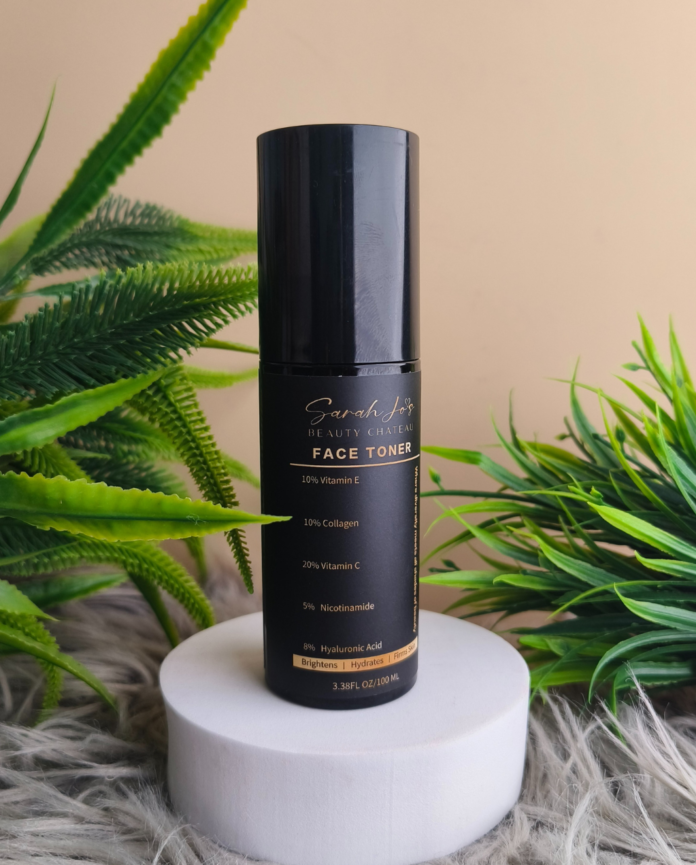Caring for sensitive skin requires a gentle, informed approach. Whether it’s redness, dryness, or irritation, sensitive skin reacts quickly to environmental changes, harsh products, or stress. Understanding your skin’s unique needs is key to creating a routine that soothes, protects, and nourishes. A surprising yet essential component of this routine can include a face toner—an often underestimated product in the world of sensitive skincare.
Let’s delve into the essentials of skincare for sensitive skin, focusing on effective ingredients, recommended products, and practical tips to keep your skin calm and balanced.
What Defines Sensitive Skin?
Sensitive skin is characterized by a heightened reactivity to external factors such as:
- Harsh chemicals in skincare or makeup.
- Weather changes, particularly extreme cold or heat.
- Friction or pressure from clothing or facial masks.
- Allergens or fragrances in products.
Common signs include redness, dryness, itching, and occasional flare-ups like eczema or rosacea. Identifying these triggers can help you craft a skincare routine that minimizes irritation.
Step 1: Gentle Cleansing
Cleansing is the foundation of any skincare routine, but for sensitive skin, it’s critical to choose products that are non-stripping and free from harsh ingredients.
What to Look For:
- Fragrance-Free: Fragrances can irritate sensitive skin.
- Creamy or Milky Formulas: These provide hydration while cleansing.
- pH-Balanced Cleansers: Maintain the skin’s natural protective barrier.
Ingredients to Avoid:
- Sulfates (e.g., SLS or SLES).
- Alcohols that can dry out the skin.
- Exfoliating acids in high concentrations.
Pro Tip:
Use lukewarm water for cleansing—hot water can strip natural oils and worsen irritation.
Step 2: The Role of a Face Toner
While some may view a face toner as an optional step, it can be a game-changer for sensitive skin. A good toner balances the skin’s pH, provides hydration, and preps the skin for the next steps in your routine.
Benefits of Face Toner for Sensitive Skin:
- Soothing Irritation: Look for toners with chamomile, aloe vera, or calendula.
- Hydration Boost: Hydrating toners with glycerin or hyaluronic acid replenish moisture.
- Barrier Repair: Some toners include ingredients like ceramides to strengthen the skin’s barrier.
How to Use:
- After cleansing, apply a small amount of toner to a cotton pad or directly onto your palms.
- Gently pat it onto your face without rubbing.
What to Avoid in Toners for Sensitive Skin:
- Alcohol-based formulas.
- Artificial fragrances and dyes.
- Strong astringents like witch hazel in high concentrations.
Step 3: Moisturizing to Protect and Repair
A good moisturizer locks in hydration, repairs the skin barrier, and provides a shield against external irritants.
Key Ingredients to Look For:
- Ceramides: Strengthen the skin barrier.
- Hyaluronic Acid: Hydrates without clogging pores.
- Colloidal Oatmeal: Calms redness and irritation.
Texture Matters:
- Dry Sensitive Skin: Rich, creamy moisturizers.
- Oily Sensitive Skin: Lightweight, gel-based moisturizers.
Step 4: Sun Protection Is Non-Negotiable
Sensitive skin is particularly prone to damage from UV rays. A daily sunscreen with SPF 30 or higher is essential.
Recommended Sunscreens:
- Mineral-Based (Physical) Sunscreens: Contain zinc oxide or titanium dioxide, which are less likely to irritate.
- Fragrance-Free Formulas: Avoid unnecessary additives.
Pro Tip:
Reapply sunscreen every two hours, especially if you’re outdoors.
Step 5: Targeted Treatments for Sensitive Skin
If your sensitive skin has specific concerns like redness, dryness, or acne, consider adding gentle treatments:
Redness Relief:
- Niacinamide (Vitamin B3): Soothes inflammation.
- Azelaic Acid: Reduces redness associated with rosacea.
Dryness:
- Squalane: Lightweight hydration.
- Panthenol (Vitamin B5): Repairs the skin barrier.
Acne-Prone Sensitive Skin:
- Salicylic Acid in low concentrations.
- Tea Tree Oil diluted with a carrier oil.
Ingredients Sensitive Skin Loves
1. Aloe Vera:
Calms and hydrates irritated skin.
2. Chamomile:
Reduces redness and soothes irritation.
3. Green Tea Extract:
Packed with antioxidants to fight inflammation.
4. Shea Butter:
Deeply moisturizes without clogging pores.
Ingredients to Avoid for Sensitive Skin
- Alcohols: Dry out and irritate the skin.
- Fragrances and Perfumes: Common culprits behind allergic reactions.
- Essential Oils: Can be too strong for sensitive skin.
- Strong Acids: Such as glycolic acid in high concentrations.
Lifestyle Tips for Sensitive Skin
Skincare products are just one part of the equation. Lifestyle changes can also make a significant difference:
1. Simplify Your Routine:
Stick to a cleanser, toner, moisturizer, and sunscreen. Avoid overloading your skin with too many products.
2. Stay Hydrated:
Drink plenty of water to keep your skin hydrated from within.
3. Choose Fabrics Wisely:
Soft, breathable fabrics like cotton are less likely to irritate your skin.
4. Avoid Over-Exfoliating:
Exfoliate only once a week with gentle scrubs or enzyme-based products.
DIY Skincare for Sensitive Skin
1. Soothing Oatmeal Mask:
- Mix 2 tablespoons of colloidal oatmeal with 1 tablespoon of honey and water to form a paste.
- Apply to your face, leave for 10 minutes, and rinse with lukewarm water.
2. Rose Water Face Toner:
- Use pure rose water as a hydrating and soothing toner.
3. Cucumber and Aloe Vera Mist:
- Blend cucumber juice with aloe vera gel and transfer it to a spray bottle for an instant refresh.
Creating a Sensitive Skin Routine
Here’s a simple yet effective routine:
- Morning:
- Gentle cleanser.
- Hydrating face toner.
- Lightweight moisturizer.
- Mineral sunscreen.
- Evening:
- Gentle cleanser.
- Soothing face toner.
- Rich moisturizer.
